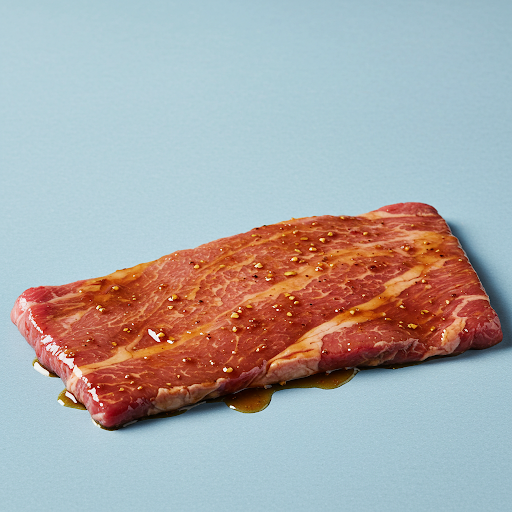Myth – Most marinades only penetrate a few millimeters into meat. Marinades are used primarily to add flavor.

The myth that marinades tenderize beef is a common culinary misconception that has persisted for years. Despite being widely believed, science tells us a different story.
In reality, marinades penetrate meat very minimally – typically only a few millimeters into the surface. This limited penetration means marinades primarily flavor the exterior of the meat rather than transforming its internal texture. Here’s why marinades don’t significantly tenderize beef:
- Penetration depth: Most marinade components, including acids and enzymes, can only reach about 1-4mm below the surface of the meat in typical marinating times (even overnight).
- Protein structure: Beef toughness comes from two main components – connective tissue (collagen) and muscle fibers. Breaking down collagen requires long cooking at low temperatures, not acids from marinades.
- Surface effects: While acids (like lemon juice or vinegar) in marinades can denature proteins on the meat’s surface, this often creates a mushy exterior rather than tender meat throughout.
- Time constraints: The acidic or enzymatic components that could theoretically tenderize meat work extremely slowly at refrigerator temperatures, and the meat would spoil before significant tenderization occurred.
What actually tenderizes beef is:
- Proper cooking methods appropriate to the cut (low and slow for tough cuts)
- Mechanical tenderization (like pounding or using a jaccard tool)
- Natural aging processes
- Selecting naturally tender cuts
Marinades are excellent for adding flavor to the exterior of meat, but expecting them to transform a tough cut into a tender one is unfortunately a myth. For truly tender beef, selecting the right cut and cooking method is far more important than marinating.